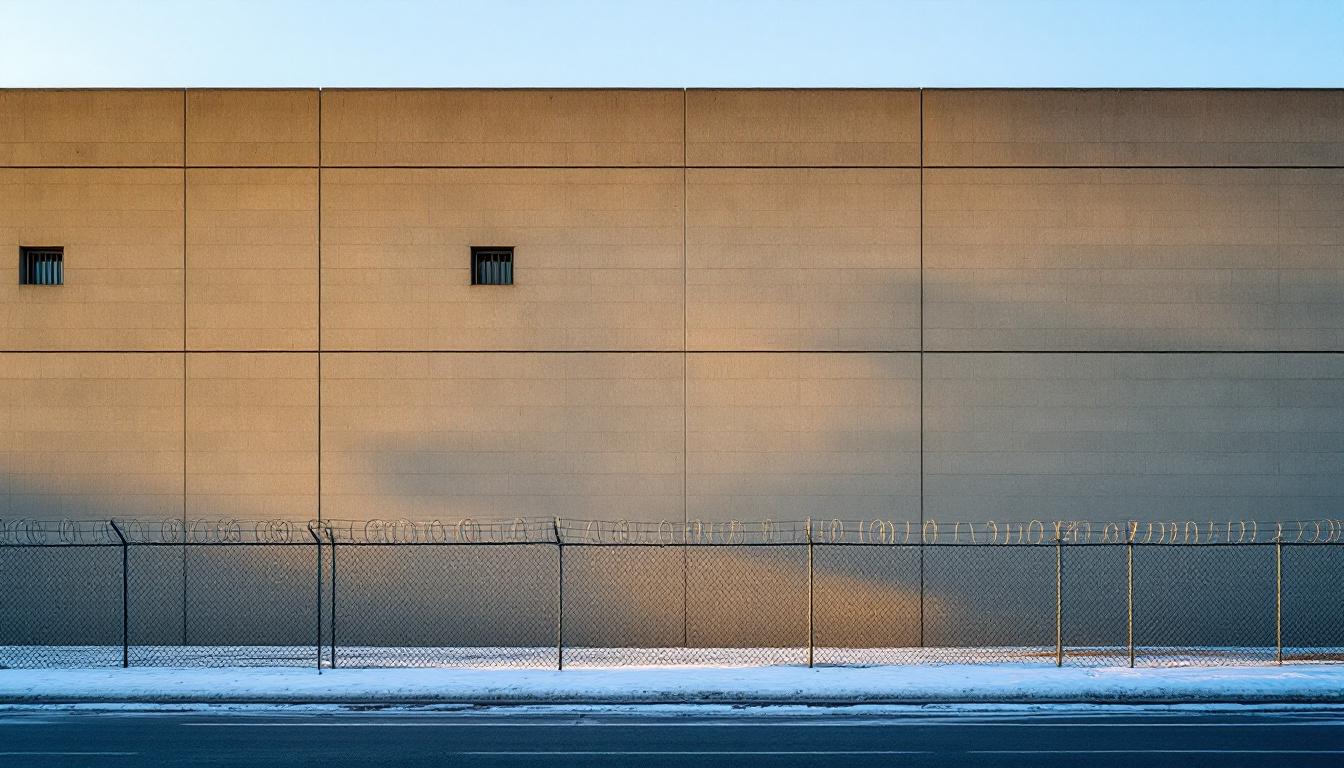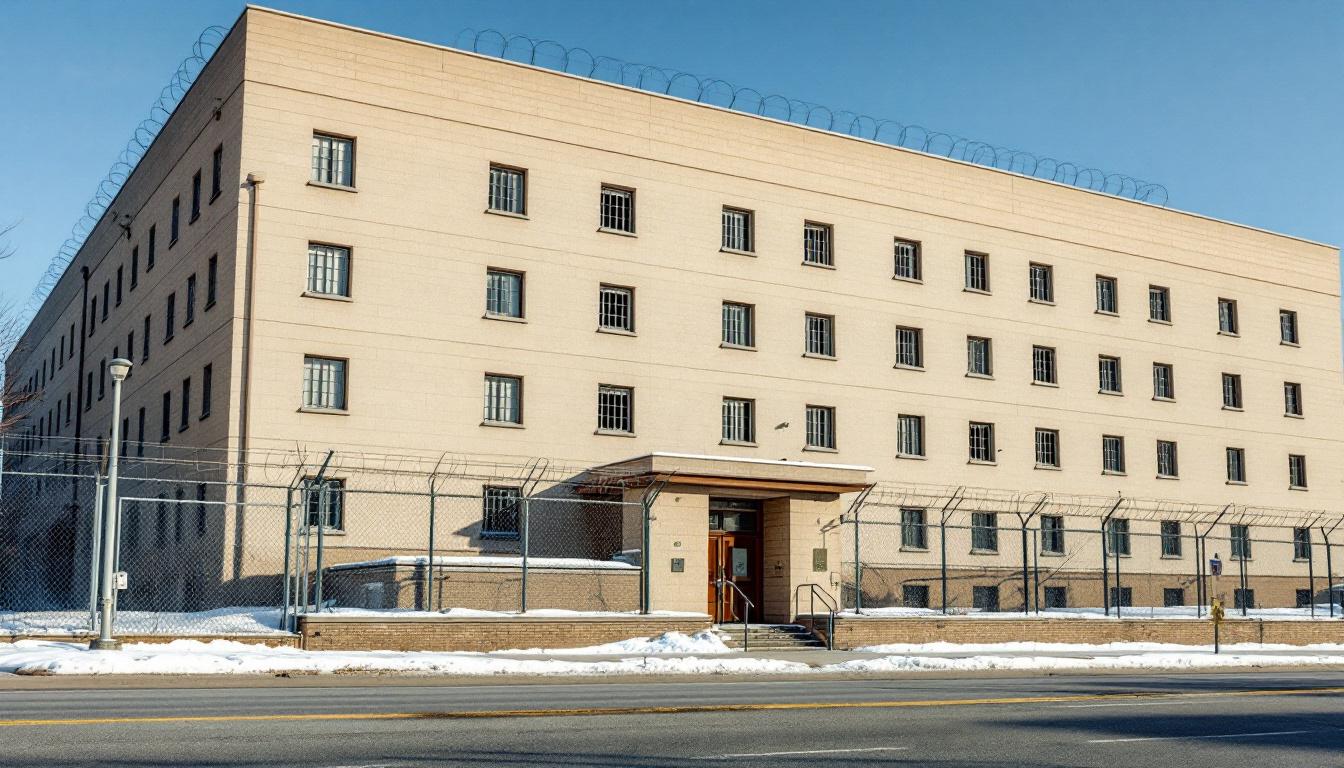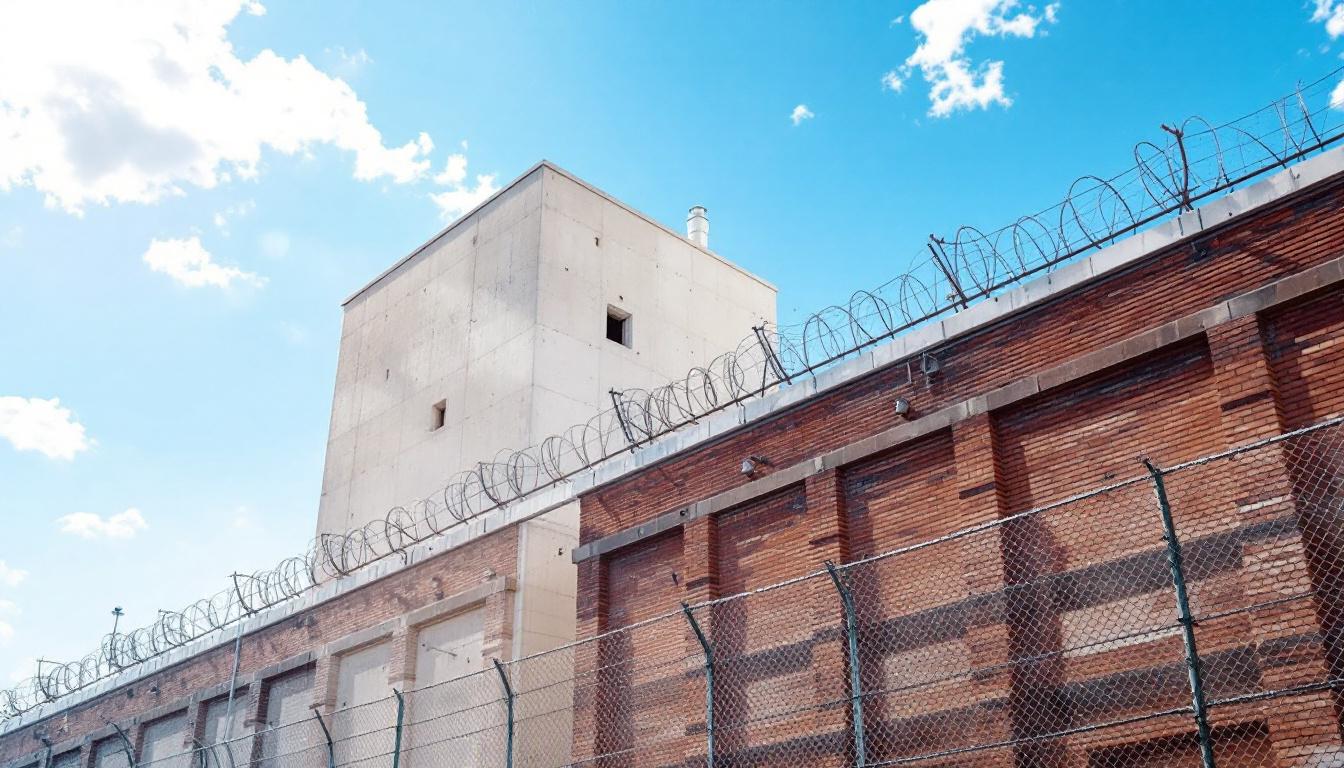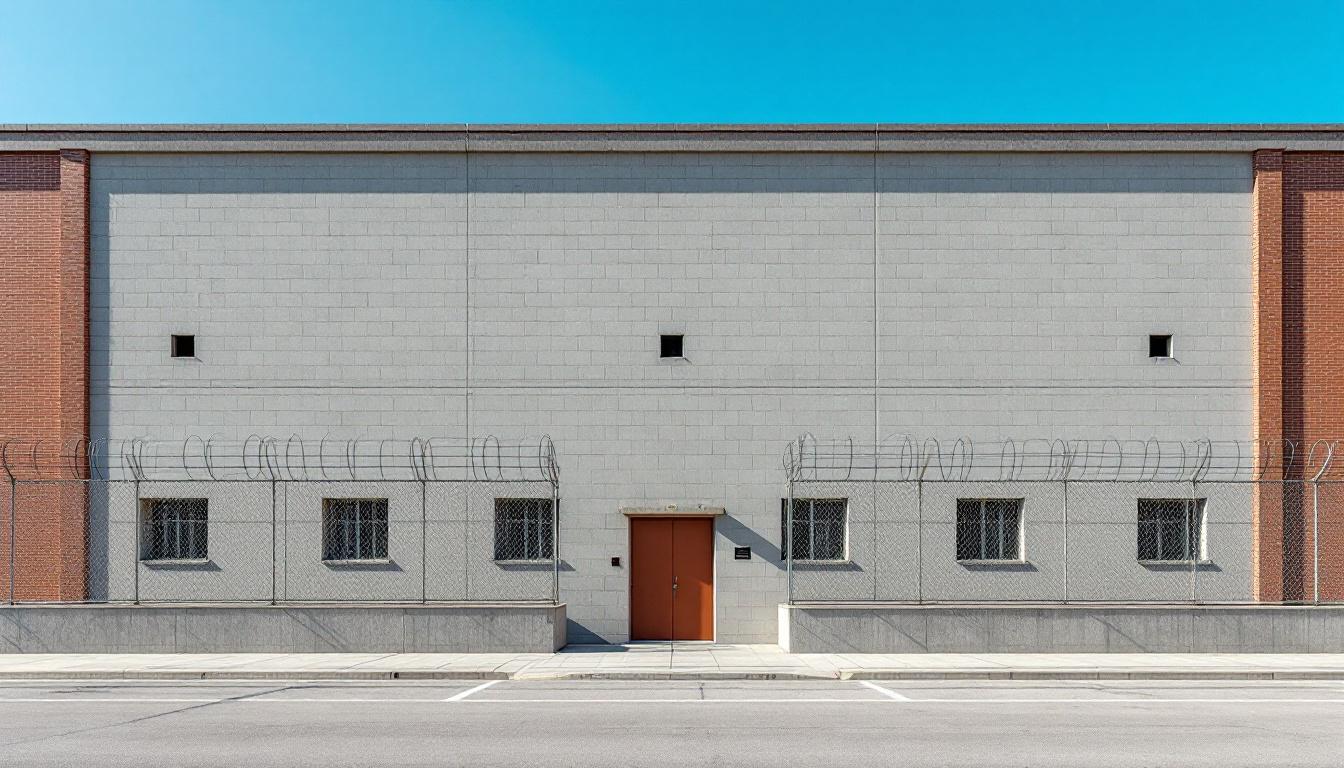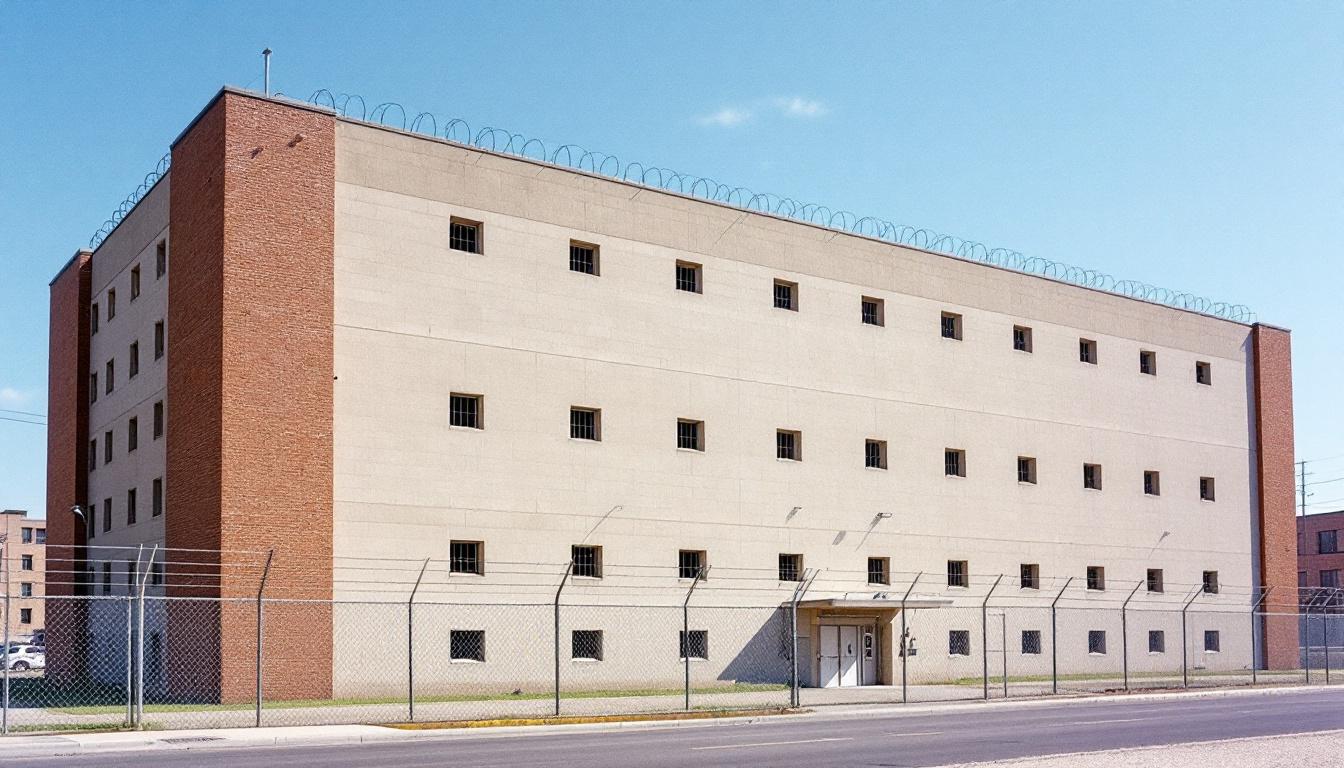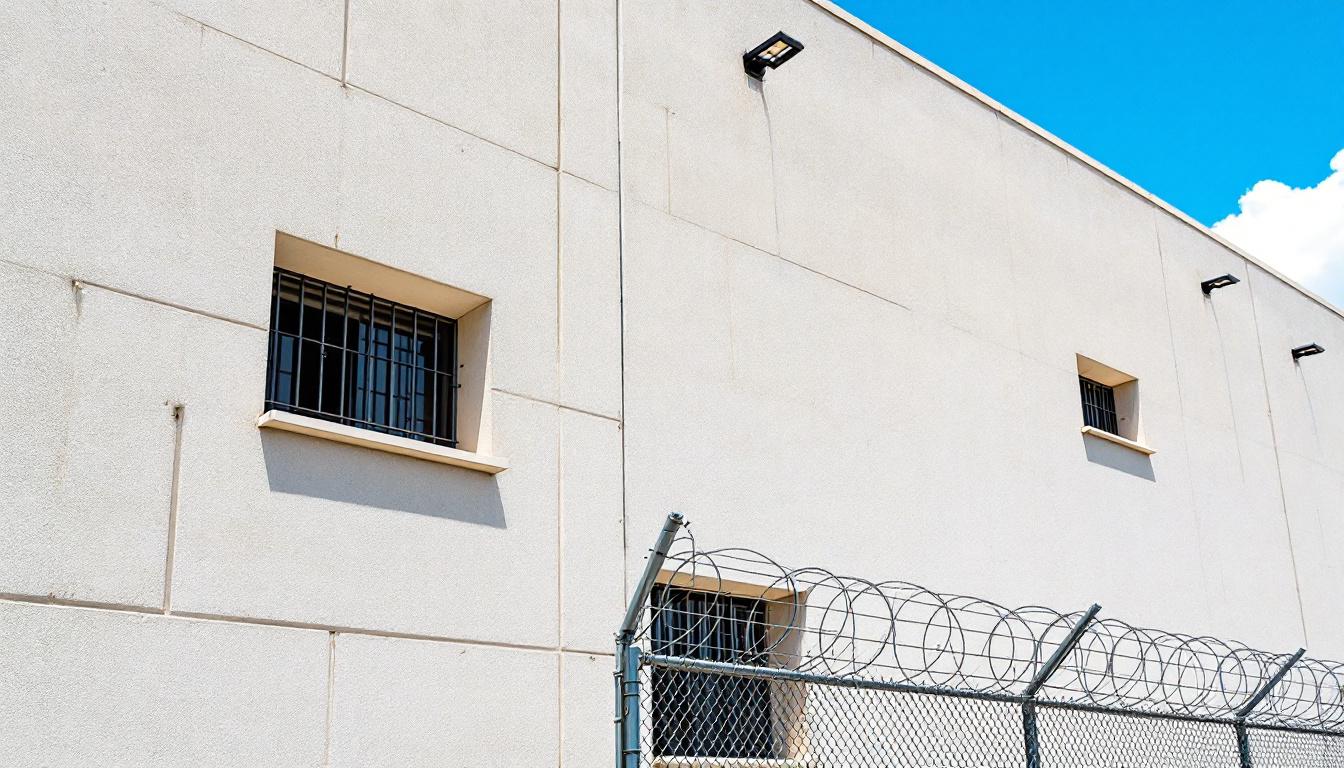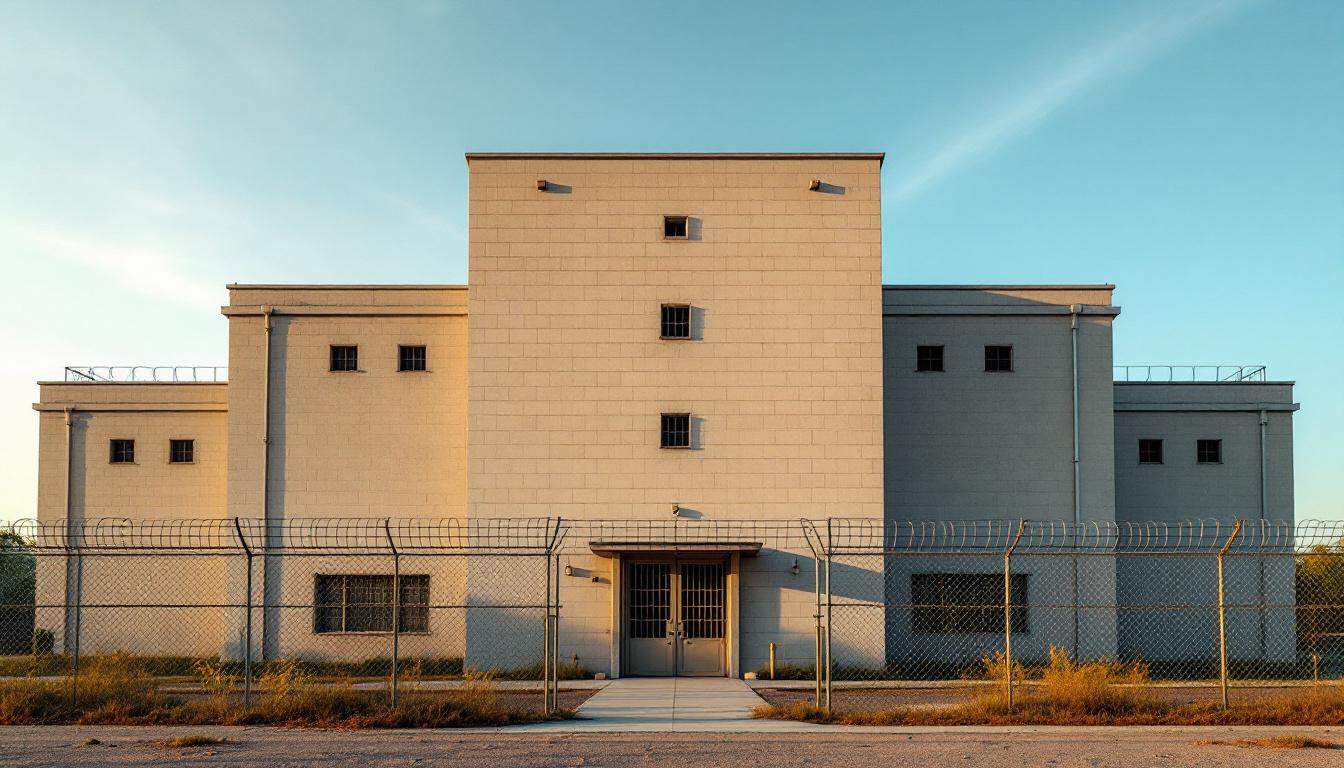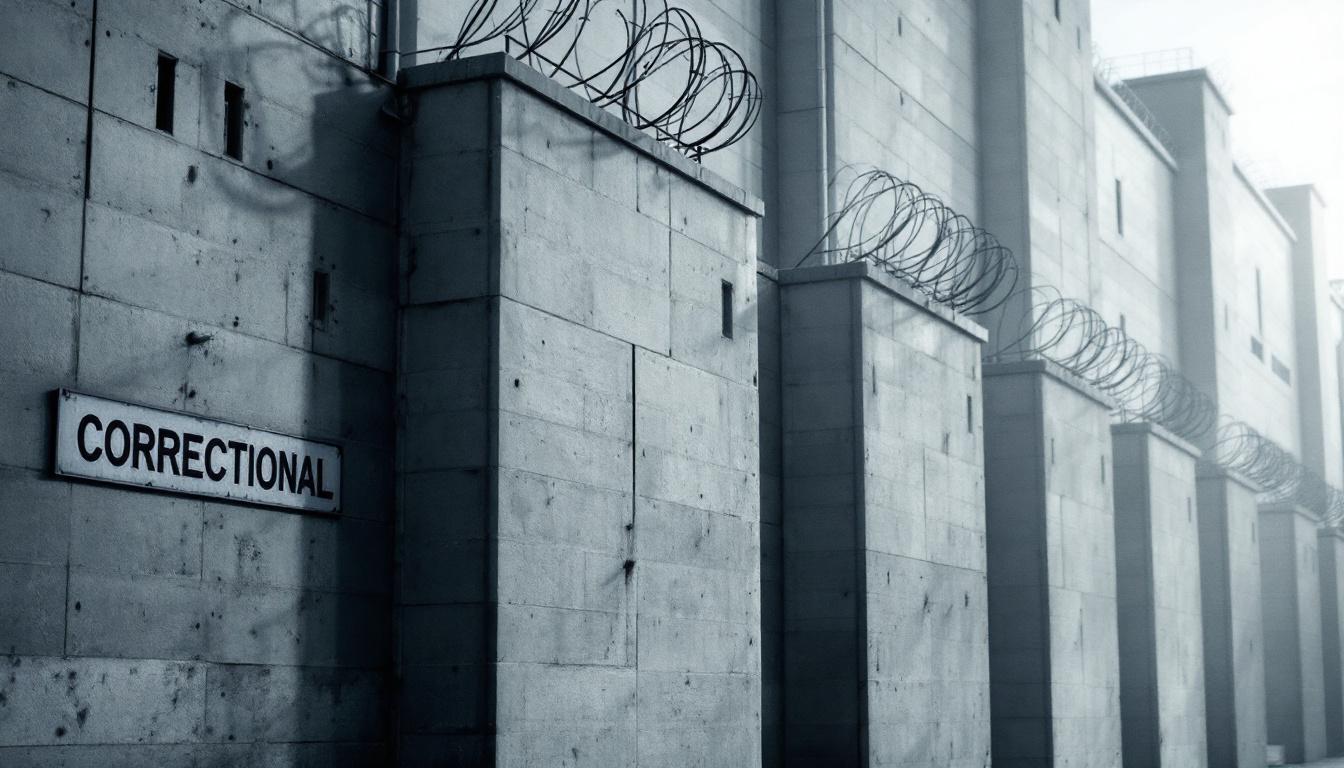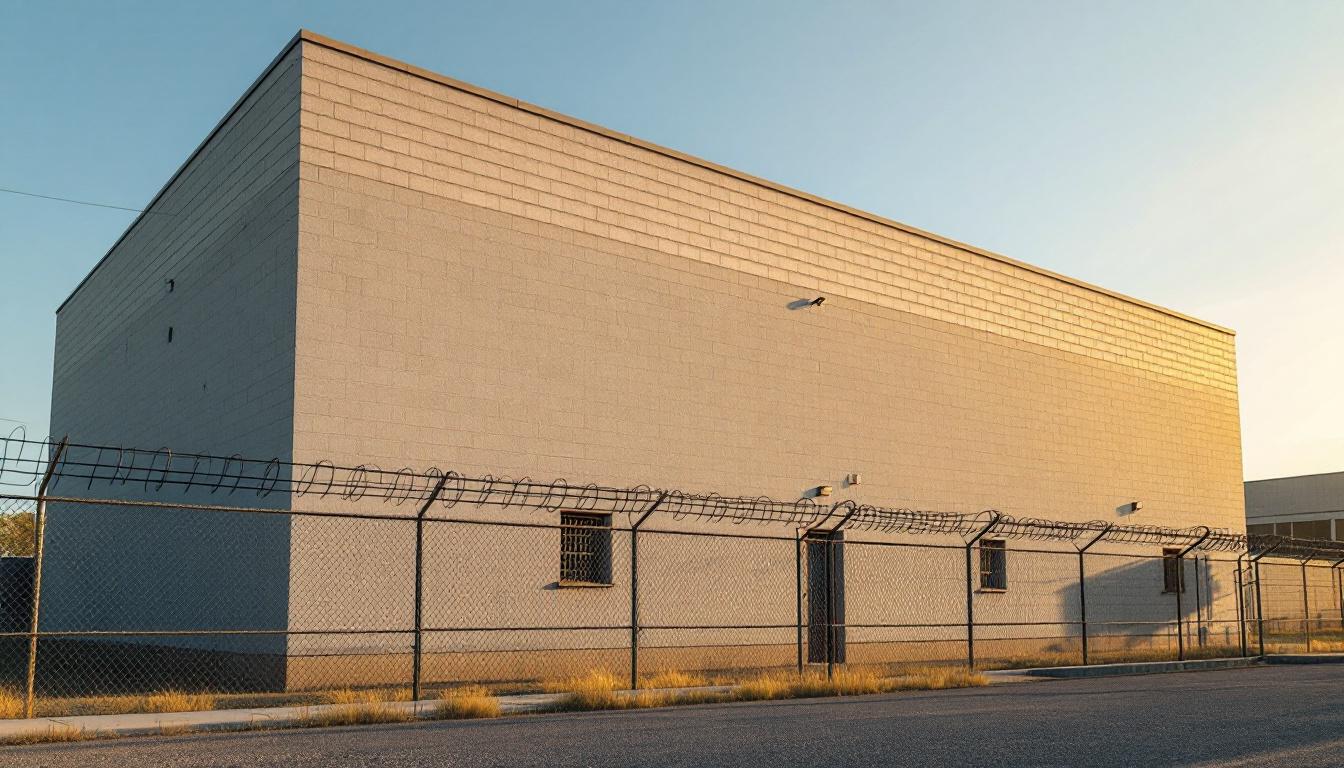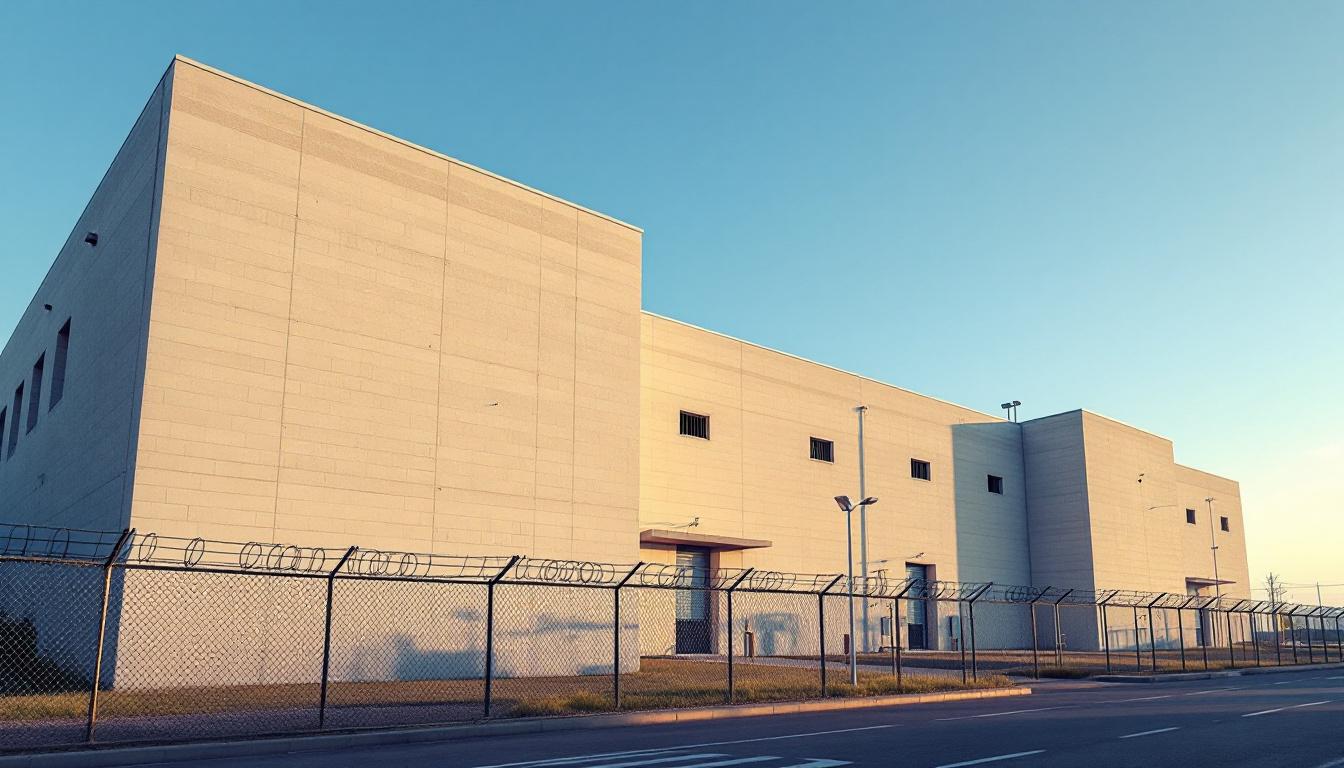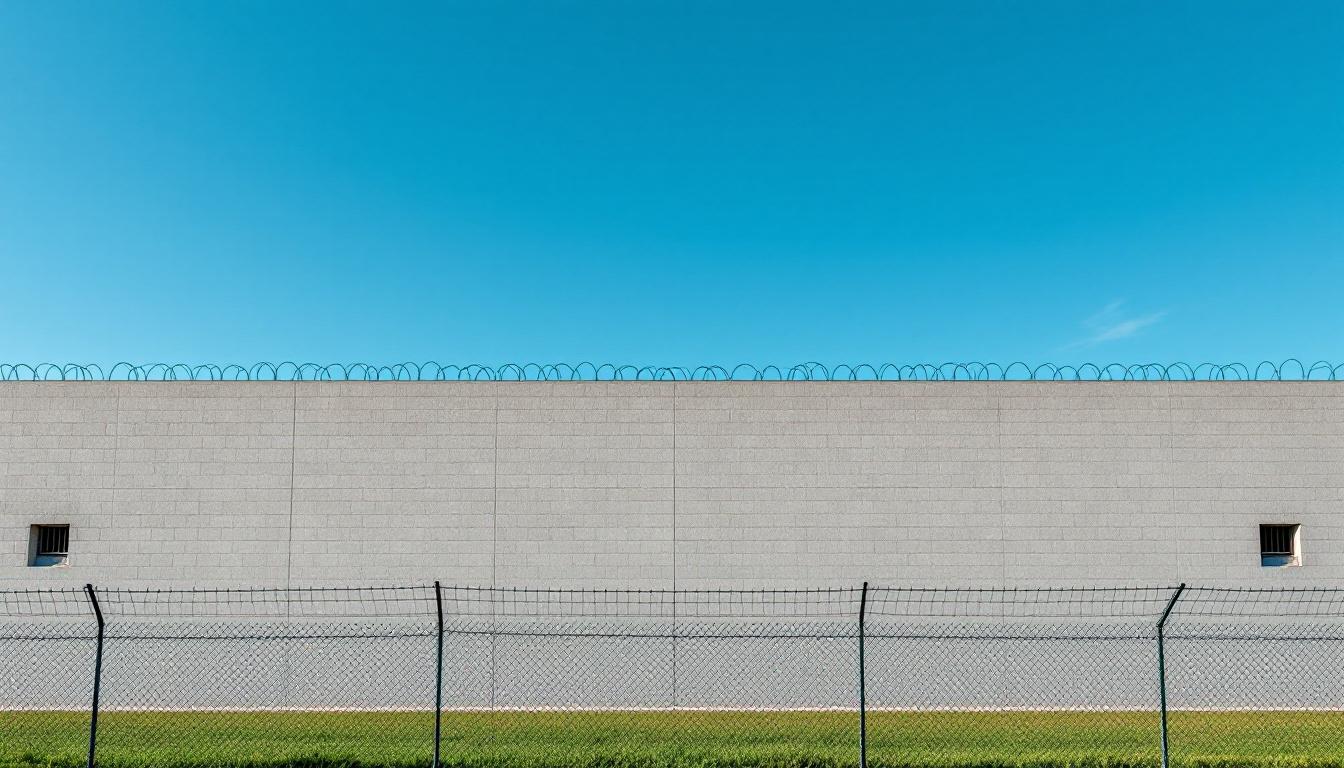
Quick Navigation
How to contact an inmate at Denver Reception & Diagnostic Center
This comprehensive guide will walk you through how to connect with an inmate at Denver Reception & Diagnostic Center. Follow the steps below to find an inmate and send letters and photos:
- Search for the inmate using our search tool below
- Create your account or log in to Penmate
- Write your message (up to 6,000 characters)
- Send instantly - inmates receive printed copies daily
Find an Inmate
Search for an inmate to start communicating today
Tip: You can search by first name, last name, or inmate ID number
To contact a person at Denver Reception & Diagnostic Center start by searching for the person on the official facility website. Perform a search by following these steps:
- Step 1: Enter their first name and last name into the search form and click "Search"
- Step 2: Locate their inmate record
- Step 3: Write down their Inmate ID and any housing information provided
Important! Be sure to enter the person's full name. Nicknames should not be used.
How to Send Messages to Inmates

You can use your phone or computer to send emails, letters, and photos to an inmate. Messages are sent electronically to inmate tablets or kiosks at the facility. If you would like to send a message, start by searching for an inmate at Denver Reception & Diagnostic Center.
Sending Photos and Postcards

A great way to send love and support to a loved one at Denver Reception & Diagnostic Center is to send photos and postcards. It only takes a few minutes to send photos from your phone and it makes a huge difference. You can also mail postcards with words of support and inspiration, or design your own postcard for special moments like birthdays and holidays.
Important! Be sure not to send any explicit photos or they may not be approved by the facility. You can also use a photo printing app like Penmate to make sure your photos are printed at the correct size (4x6 or 3x5) and are mailed according to the rules and regulations of Denver Reception & Diagnostic Center.
Frequently asked questions about Denver Reception & Diagnostic Center
-
How long does it take to deliver a message?
If you're sending an email message your letter is usually delivered within 24-48 hours. For messages sent via mail you should expect delivery within 3-7 days. All messages will need be approved by Denver Reception & Diagnostic Center.
-
How much does it cost to send a message to Denver Reception & Diagnostic Center?
You can send a message free using your phone or mail a message via USPS for the price of a $0.60 stamp and envelope. You can also purchase credits or e-stamps from services starting at $1.99.
-
What services can I use to contact an inmate at Denver Reception & Diagnostic Center?
Penmate
You can use Penmate to send letters and photos to an inmate from your phone. It's an easy way to stay in touch during your loved one's incarceration. Use the inmate locator to find an inmate's location and contact information, then you can send messages within a few minutes.
Securus messaging
Securus may be another option for communicating with an inmate at Denver Reception & Diagnostic Center. You can create a friends and family account and purchase credits to send messages. All messages will be reviewed and must be approved by the facility.
JPay
Some county jails and state prisons may support sending messages with JPay. You must register an account with the system, find your loved one, and purchase stamps to send messages. For some locations you can also attach photos.
Smart Jail Mail
You may also check if Smart Jail Mail is available at Denver Reception & Diagnostic Center. Smart Jail Mail is operated by Smart Communications and has contracted with some state and county jails. After purchasing credits, your messages and photos are sent to the facility, printed out, and then handed out to your loved one.
-
What is the mailing address of Denver Reception & Diagnostic Center?
Mailing address:
Denver Reception & Diagnostic Center
10900 Smith Rd
Denver, CO 80239
Phone: (303) 371-4804Business hours:
- Monday: Open 24 hours
- Tuesday: Open 24 hours
- Wednesday: Open 24 hours
- Thursday: Open 24 hours
- Friday: Open 24 hours
- Saturday: Open 24 hours
- Sunday: Open 24 hours
-
What are the visiting hours at Denver Reception & Diagnostic Center?
Visiting hours at Denver Reception & Diagnostic Center vary by housing unit and security level. Generally, visits are scheduled on weekends and holidays, with some facilities offering weekday visits. Contact the facility directly at (303) 371-4804 or check their website for the current visiting schedule. Visits typically last 30-60 minutes and must be scheduled in advance.
-
What items are prohibited when sending mail to Denver Reception & Diagnostic Center?
Prohibited items typically include: cash, personal checks, stamps, stickers, glitter, glue, tape, staples, paperclips, polaroid photos, musical or blank greeting cards, hardcover books, magazines with staples, and any items containing metal or electronics. Only send letters on plain white paper with blue or black ink. Photos must be printed on regular photo paper (no Polaroids). Always check with Denver Reception & Diagnostic Center for their specific mail policies.
-
How do I send money to an inmate at Denver Reception & Diagnostic Center?
You can send money to an inmate at Denver Reception & Diagnostic Center through several methods: 1) Online using JPay, Access Corrections, or the facility's approved vendor, 2) Money orders mailed directly to the facility with the inmate's name and ID number, 3) Kiosks located in the facility lobby, or 4) Over the phone using a credit or debit card. Fees vary by method, typically ranging from $2.95 to $11.95 per transaction.
-
Can I schedule a video visit with an inmate at Denver Reception & Diagnostic Center?
Many facilities now offer video visitation as an alternative to in-person visits. At Denver Reception & Diagnostic Center, video visits may be available through services like Penmate, Securus Video Connect, GTL, or ICSolutions. Video visits typically cost $10-20 for 20-30 minutes and must be scheduled in advance. You'll need a computer or smartphone with a camera and reliable internet connection. Contact the facility for their specific video visitation policies and approved vendors.
-
What identification do I need to visit an inmate at Denver Reception & Diagnostic Center?
All visitors must present valid government-issued photo identification such as a driver's license, state ID, passport, or military ID. Minors must be accompanied by a parent or legal guardian who can provide the minor's birth certificate. Some facilities require visitors to be on the inmate's approved visitation list, which may require a background check. Contact Denver Reception & Diagnostic Center for specific ID requirements and visitor approval procedures.
-
How can I find out an inmate's release date?
To find an inmate's release date at Denver Reception & Diagnostic Center, you can: 1) Use the online inmate search tool if available, 2) Call the facility's records department, 3) Contact the inmate's case manager or counselor, or 4) Have the inmate provide this information during a call or visit. For privacy reasons, some facilities only release this information to immediate family members.
Facility Overview
Contact Information
Denver Reception & Diagnostic Center10900 Smith Rd
Denver, CO 80239
Phone: (303) 371-4804
Official Website
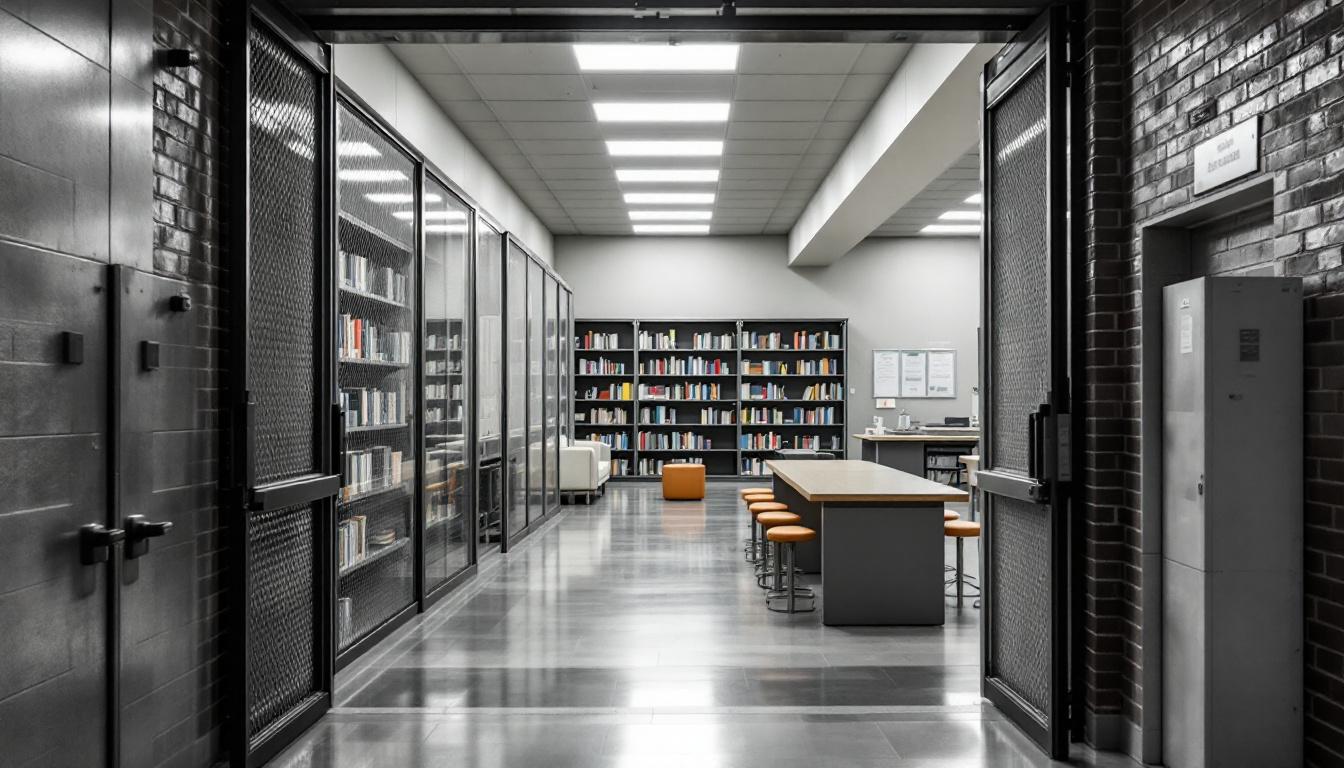
About Denver Reception & Diagnostic Center
Operating as Colorado's primary intake and assessment facility, the Denver Reception and Diagnostic Center serves as the initial entry point where all state inmates begin their correctional journey. Built in 1991 and located at 10900 Smith Road in Denver, this specialized facility focuses on the critical process of evaluating and classifying new arrivals to ensure appropriate placement within the Colorado Department of Corrections system. The center's primary mission revolves around comprehensive assessment and diagnostic services that determine each individual's security level, medical needs, and program requirements before transfer to a permanent facility.
The facility houses approximately 96 permanently assigned inmates in general population, while also maintaining specialized housing units designed to address various needs during the intake process. DRDC operates a 62-bed transition unit for individuals moving through the system, along with medical facilities including a 36-bed infirmary and a 12-bed Special Medical Needs Unit. The center also features an auxiliary Dialysis Unit, providing specialized medical care for inmates requiring ongoing treatment. This comprehensive approach to medical services reflects the facility's role in identifying and addressing health needs early in an individual's incarceration.
Located in Denver, Colorado, the facility maintains structured visiting programs including both in-person visits on weekends from 8:30 a.m. to 3 p.m. and daily video visiting options through approved technology platforms. The center's focus on assessment and classification makes it a temporary placement for most individuals, though it maintains permanent housing for those requiring ongoing specialized medical care or serving shorter sentences within the reception environment.
Programs & Services
The Denver Reception and Diagnostic Center serves as the entry point for Colorado's correctional system, where comprehensive assessment and classification processes determine appropriate placement for incoming individuals. Built in 1991, this facility operates specialized medical units including a 36-bed infirmary, a 12-bed Special Medical Needs Unit, and an auxiliary Dialysis Unit that provides critical care for inmates requiring ongoing medical treatment. The facility's 62-bed transition unit supports individuals preparing for placement or transfer, while approximately 96 permanently assigned inmates receive services in general population housing.
Beyond its primary intake and medical functions, DRDC typically offers educational programming that may include adult basic education, GED preparation, and literacy courses to help individuals develop essential academic skills. The facility often provides vocational training opportunities in areas such as maintenance, food service, and other practical skills that support successful reintegration. Counseling services commonly include substance abuse treatment programs, mental health support, and case management services that address individual needs identified during the diagnostic process.
The center maintains comprehensive visiting programs including contact visits, non-contact visits, and video visiting options through Securus Technologies, allowing families to maintain important connections during the intake and assessment period. Religious services and recreational activities are typically available to support overall well-being, while library services may provide access to legal research materials and educational resources. These programs work together to create a structured environment that prepares individuals for their continued correctional experience while addressing immediate medical, educational, and social service needs.
Daily Life & Visitation
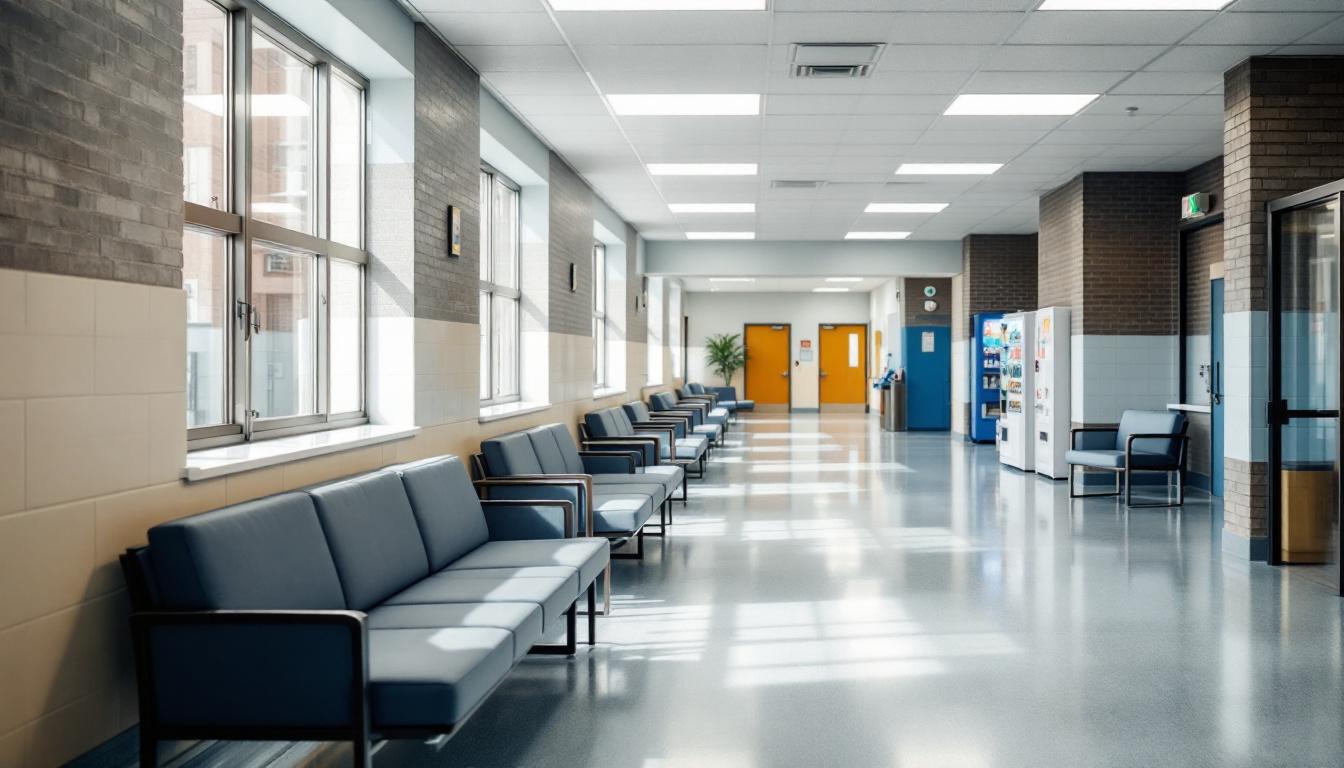
The assessment and classification process shapes each day for individuals at Denver Reception & Diagnostic Center, where all Colorado Department of Corrections inmates begin their correctional journey. Built in 1991, this facility serves as the entry point where comprehensive evaluations determine appropriate placement within the state's correctional system. Those requiring specialized medical attention may be housed in the 36-bed infirmary or 12-bed Special Medical Needs Unit, while others participate in the assessment process from general population housing that accommodates approximately 96 permanently assigned individuals.
Weekend visits provide crucial family connections, with in-person visiting available Saturdays and Sundays from 8:30 a.m. to 3 p.m., though visitor processing occurs during specific windows in the morning and afternoon. The facility also offers video visiting through Securus Technologies from 8:00 a.m. to 10:00 p.m. daily, allowing families to maintain contact through 10 or 25-minute sessions that must be scheduled in advance. These visits typically require approval and placement on the individual's visiting list, with appointments arranged by calling the facility directly.
The transitional nature of DRDC means that most individuals experience a structured routine focused on assessment activities, medical evaluations, and classification procedures. The 62-bed transition unit serves those preparing for placement in permanent facilities, while some residents receive specialized care such as dialysis treatment in the facility's auxiliary unit. Throughout their stay, individuals may participate in orientation programs and meet with classification staff to determine their most appropriate long-term placement within the Colorado correctional system.
Ready to Connect?
Start communicating with your loved one today
Search for an Inmate
